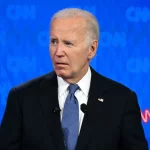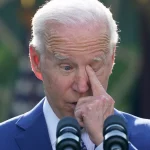By Michael Whittaker. Media: DailyWire.

Hundreds of civilians and paramilitary forces were killed or injured over the weekend in a series of airstrikes in the Sudanese capital of Khartoum, as the Sudanese army bombed positions held by a rival military force in a power struggle that some international observers fear could ignite a full-blown civil war.
Fighting broke out in Sudan on Saturday between the army and Rapid Support Forces, a paramilitary organization that had allied with the military to overthrow longtime dictator Omar al-Bashir following widespread popular protests against his regime in 2019. The two groups had shared power in the transitional government: General Abdel Fattah al-Burhan headed the provisional government’s Sovereign Council while RSF commander General Mohamed Hamdan Dagalo acted as deputy head.
While reports about the precise number of casualties differ, one doctor’s group told Reuters that at least 97 civilians had been killed and 365 had been injured since the fighting began.
Previous reports from The Central Committee of Sudanese Doctors claimed that at least 56 civilians were killed and 595 people (including combatants) were injured. The committee said “scores” of RSF fighters had been killed, although they did not provide precise data.
The World Health Organization said 83 people were killed and 1,126 injured in the fighting since April 13, with most casualties occurring over the weekend.
The fighting has spread beyond the capital. The U.N. World Food Programme confirmed that three of their Sudanese employees in Darfur were killed in the fighting and that they were halting all operations in the country. Roughly one-third of Sudan’s 46 million people are experiencing “acute food insecurity” and desperately need the aid, according to the WFP.
“While we review the evolving security situation, we are forced to temporarily halt all operations in Sudan,” WFP executive director Cindy McCain, the widow of former U.S. Senator John McCain, said in a statement. “WFP is committed to assisting the Sudanese people facing dire food insecurity, but we cannot do our lifesaving work if the safety and security of our teams and partners is not guaranteed.”
The fighting reportedly began after a disagreement over the integration of RSF forces into the regular armed forces as part of the planned transition to civilian rule. With the forces of the rival generals turning on one another, the prospects of the promised democratic government seem grim.

“We feel powerless,” Omar Farook, a resident of Khartoum, who participated in the anti-government demonstrations in 2019, told the New York Times. “Everyone is worried this will go the way of Yemen or Syria. The ghost of civil war is here.”
Sudan has been wracked by internal strife for most of its history as an independent nation. Religious and ethnic conflicts between Arabs and blacks, as well as the Muslim majority in the north and Christian and animist communities in the south, have erupted into large-scale violence numerous times. Atrocities committed against the people of the region of Darfur by al-Bashir’s regime drew widespread international condemnation. They led to al-Bashir’s indictment by the International Criminal Court on charges of genocide and crimes against humanity. Two multidecade conflicts (1955-1972 and 1983-2005) with the people of South Sudan led Khartoum to cede that territory entirely – South Sudan was granted independence in 2011.
However, the current conflict is unique in that it is centered in the capital and the nation’s heartland rather than occurring primarily in its periphery.
The conflagration also threatens Sudan’s rehabilitation on the world stage – the country was designated a state sponsor of terror by the United States in 1993 after an Islamist government under al-Bashir invited terror group Al-Qaeda into the country. Sudan remained Al Qaeda’s primary base of operations until 1996, when senior leadership relocated to Afghanistan.
Former President Donald Trump revoked Sudan’s designation as a state sponsor of terror after al-Bashir was overthrown and the country normalized relations with Israel. The transitional government helped negotiate a peace deal with rebels in Darfur in 2020. However, the outbreak of violence threatens to reignite conflicts across the nation and the region and to undo much of the progress of reintegrating Sudan into the international community.
The U.N. Security Council, which has been fiercely divided since one of its permanent members, Russia, launched its invasion of Ukraine last year, issued a statement condemning the violence. The Arab League, which counts Sudan among its members, called an emergency meeting on Sunday to “stop the bloodshed.”

Despite this, propaganda from each of the rival generals has circulated across the country on the internet and television. Both claim to have the upper hand, and neither seems interested in negotiating.
At least 30 Egyptian soldiers and seven warplanes were seized by RSF forces at an airbase 125 miles north of Khartoum. Egypt said that the soldiers were in Sudan for a training exercise. A relative of General Handam told the New York Times that the soldiers were there to conduct air strikes on behalf of the Sudanese government. The dispute illustrates a crucial disparity between the rival armies – the regular army has access to air support while the RSF does not, but it also could drag Egypt into the war.





























































































